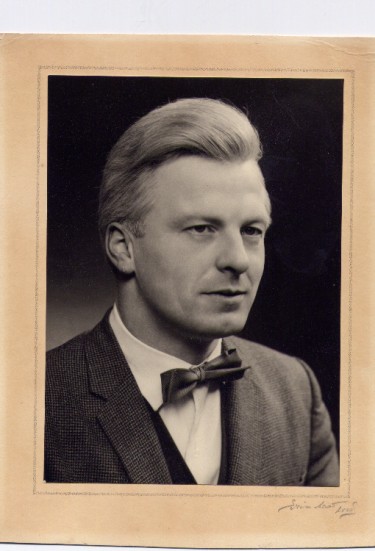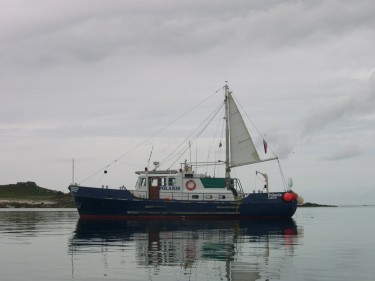23 Oct 2004, Clapham, London
Dear Fred
Thank you for your incisive feedback. You didn't provide your e-mail address with your comments, so I'm hoping that you will get to see this.
In my last update, I intended no disrespect for Ray Mears - I have the greatest admiration for his values. I was particularly impressed that he took the time and trouble to respond to a question I'd asked him - I'd asked what charities he has seen working directly with indigenous peoples to encourage them to value and nurture their traditional skills. He couldn't think of one at the time, but sent me a handwritten note a couple of days later to suggest such a charity, the Tribes Foundation. (Incidentally, he has beautiful handwriting.)
The reason that I'd asked him this question is that I'm planning a major expedition, and am looking for a tie-in with a charity that supports indigenous cultures in an appropriate manner so that I can help promote their cause. As you seem interested in this kind of thing yourself, maybe you can suggest one?
You wrote that I entirely missed the point of the course. It's intriguing that you feel able to judge me without knowing me. On the contrary, I believe that I completely got the point of the course. However, my perception of the point is rooted in a very personal view of the world's future, which I generally prefer not to publicise. If you're interested in bushcraft and indigenous skills, maybe you've come across the Hopi tribe. If so, you may have some idea what informed my decision to take the course.
The contact details you provided were:
ADDRESS: The, Forest, Somewhere, Some code
TELEPHONE: Who knows
But maybe you could provide me with more accurate contact details, so that we can keep future correspondence confidential.
|
|
12 Oct 2004, Tunbridge Wells
You know Ray Mears, the guy on the TV who is passionate about bushcraft and who teaches essential survival skills? Like lighting a fire without matches?
Well, last week I went on a course run by his Woodlore company, to learn the firestarting trick and other survival-type skills. We were taken from the rendezvous point into the depths of woodlands on a private estate on the Sussex Weald, near Tunbridge Wells, where we pitched camp.
Our leader for the week was Woody, an ex-forces man with an unsettlingly good knowledge of stalking and tracking... of the human variety. He was ably assisted by Stanni (an action-man lookalike from the Netherlands) and Willow (who, in her green hooded jacket and broad-brimmed woodsman's hat looked exactly like a spirit of the trees).
Over the next six days they drilled us in the techniques of survival, and patiently patched us up after numerous mishaps with bushcraft knives. We built shelters out of sticks and leaves, made cord out of nettles (painful), fashioned spoons out of wood, skinned and gutted rabbits, and set snares for birds. We learned how to navigate by the sun, moon and stars, and how to forage for food in the wild. We soon discovered there's a very good reason most wild foods are not found on supermarket shelves - when an instructor said something was 'delicious', it just meant it tasted less disgusting than the rest.
And yes, we started fires without matches - very hard work, involving lots of vigorous elbow action with a bow and drill. Even if you don't manage to get your fire started, you get pretty damn warm in the attempt.
It wasn't always fun. The schedule was busy, and there never seemed to be enough hours in the day to get all our projects finished and collect our firewood. Personal hygiene went out the window very early in the week - stripping off for an al fresco shower in October didn't appeal, so I resorted to baby-wipe baths in a vague attempt to maintain respectability. And everything, I mean EVERYTHING, got covered in mud.
There were times during the week when I wondered why I'd paid so much money to do this course, when I seem to remember Girl Guide camp could be equally cold, damp and character-building, and an awful lot cheaper. But with hindsight, it was definitely worthwhile - although I hope never to be in a survival situation, it's good to know that if it happens, I'll have some idea of how to fend for myself... although after a less than impressive performance on the firestarting front, I'll be making sure I've got some matches with me.
Finally, huge thanks to Mike and Melanie Norris, who have shown generosity above and beyond the call of duty. They uncomplainingly took in a smelly, muddy, cut and bruised stray, and have plied me with hot baths and good food. Very much appreciated.
|
|
26 Sep 2004, Leeds

Methodist minister, husband, father.
Genealogist, book-lover, amateur cosmologist.
Autodidact, thinker, dreamer.
Unique, beloved, loving.
Rest in peace.
|
|
01 Sep 2004, Leeds, Yorkshire

If you thought buying a house was a tricky business, try buying a boat. Scheduling a marine survey around a suitable low tide, finding out whether the boat actually belongs to the guy who is selling it, finding workmen who not only are reliable and trustworthy but can also cope with the peculiarities of fitting out a home with curving walls made of steel... it all got very complicated.
In the meantime there were people making helpful comments like: 'A boat is a big hole in the water into which you pour money' and 'The two best days in a boatowner's life are the day he buys the boat, and the day he sells it.'
So I decided to take some time out to reconsider my options, and to look at some more boats.
I spent five days in the Isles of Scilly with Dave and Jane, on board their beautiful 1950's motor cruiser, the Polaris (as in the pole star, not as in the nuclear submarine) - pictured above. After a choppy crossing from St Mary's we anchored in a sheltered bay just off Tresco, and I spent the next few days learning about the liveaboard lifestyle.
I started to appreciate just how much infrastructure is required to make a boat into a comfortable and self-sufficient home. As well as everything you'd have in a house - electrics, plumbing, hot water and heating systems - you also need to generate your own power, purify your own water (or have huge water storage tanks) and have an enormous capacity for fuel. The Polaris has an impressive range of 9000 miles without needing to stop for refuelling.
Without a garden it's tricky to be self-sufficient for food as well, but we supplemented our shore-bought supplies with shrimps, lobster and crab we caught ourselves - my favourite foods, and absolutely free, courtesy of the sea. Rick Stein, you can keep your exorbitantly over-priced seafood - ours was fresher! Dave and Jane regularly barter their crab surplus for large quantities of French wine, so we lived well.
They had some fantastic tales to tell about their travels. They'd taken the Polaris on a cruise through the inland waterways of Europe, starting in the canals of France and making their way gradually down the Danube before popping out into the Black Sea. Looking at the map of their route really got my feet itching to travel again.
My wanderlust was further fuelled a couple of days after I returned to the mainland, when I went to see the Sammy Ley, an elegant yacht with living quarters beautifully fitted out in mahogany and brass. Her owners had spent the last 10 years sailing her around the world with their disabled son.
Have boat, will travel, it seems... slight problem, though. I don't know how to sail (looking up at the Sammy Ley's huge mast set my knees a-knocking) and motor cruising is an expensive alternative - to refill the tanks on the Polaris costs between £1300 and £6000 (depending on where you go - it can be well worth making a detour of several hundred miles for cheaper diesel).The cost, and my tender green conscience, made me uncomfortable with the motor option.
So nothing is yet decided.
But in the meantime, I'm enjoying the summer. After my foray to the Scillies, I spent a few days in Devon (thanks to Fred and Fiona in Kingsbridge for their hospitality, and to Ben and Yasmine in Salcombe for the white-knuckle ride on their speedboat), then to Winchester (thanks to Rich and Nicola), Littlehampton (thanks, Geoff and Tanya) and Arundel (thanks, Andy & Emer).
Now I'm back in Leeds to spend time with my parents - the top priority for now, since my father's recent stroke. Boats and travel may have to wait a wee while.
|
|